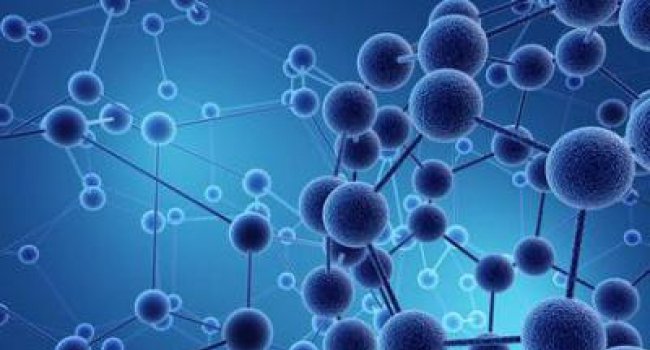The recombinant protein molecule SA-4-1BBL has been used to enhance the therapeutic efficacy of cancer vaccines with success in pre-clinical animal models. It accomplishes this by boosting the effectiveness of CD8+ T cells, adaptive immune cells trained to target the tumor for destruction. Surprisingly, when the researchers treated normal healthy mice with SA-4-1BBL alone, the mice were protected when the researchers later exposed them to different types of tumor cells.
"The novelty we are reporting is the ability of this molecule to generate an immune responsethat patrols the body for the presence of rare tumor cells and to eliminate cancer before it takes hold in the body," said Haval Shirwan, Ph.D., professor in the UofL Department of Microbiology and Immunology and the UofL Institute for Cellular Therapeutics. "Generally, the immune system will need to be exposed to the tumor, recognize the tumor as dangerous, and then generate an adaptive and tumor-specific response to eliminate the tumor that it recognizes. Thus, our new finding is very surprising because the immune system has not seen a tumor, so the response is not to the presence of a tumor."
The researchers have determined that the molecule generates a tumor immune surveillance system through activation of what are known as CD4+ T cells and innate NK cells, thereby protecting the mice against various cancer types they have never had. This function is an indication of the molecule's effectiveness in cancer immunoprevention.
In the research, published today in Cancer Research, mice that had never had cancer were treated with SA-4-1BBL alone, then challenged with cervical and lung cancer tumor cells at various time intervals. The mice showed significant protection against tumor development, with the greatest protection when challenged two weeks after treatment with SA-4-1BBL. The cancer immunoprevention effect generated by SA-4-1BBL lasted more than eight weeks.
"Just giving SA-4-1BBL alone prevents the formation of tumors in animal models," Shirwan said. "To our knowledge, this is the first study to demonstrate that an immune checkpoint stimulator, known for its function for adaptive immunity, as a single agent can activate an immune system surveillance mechanism for protection against various tumor types."
Additional testing showed that CD8+ T cells were not required for the protection, but when CD4+ T and NK cells were eliminated in the mice, protection failed, indicating these two cell types were necessary to achieve the effect. The lack of necessity for CD8+ T cells indicates the process is not one of conventional acquired immunity.
Although the research, which was conducted in collaboration with FasCure Therapeutics, LLC, tested the mice for cervical and lung cancers, the protective function of SA-4-1BBL works without context of specific tumor antigens, giving it the potential to be effective in preventing any number of tumor types.
"We are very excited about the cancer immunoprevention possibilities of this molecule. Its effectiveness is not tumor specific, and as a natural ligand, it does not cause toxicity, as is found with 4-1BB agonist antibodies. Plus, the fear of autoimmunity is highly minimized, as evident from our data, because it is activating the innate immune cells," said Esma Yolcu, Ph.D., associate professor at UofL and co-author of the study.
Immune checkpoint stimulators and inhibitors are major regulators of the immune system and work in a similar fashion to the "brake" and "gas" pedals in a vehicle. Cancer evades the immune system by various means, including immune checkpoint inhibitors, which apply the brake on the immune response against a tumor. Stimulators, on the other hand, serve the accelerator function, improving immune responses against cancer.
Drugs to block the action of immune checkpoint inhibitors already have shown therapeutic efficacy for several cancer types in the clinic and are approved by the Food and Drug Administration (FDA). According to Shirwan, the focus now is on immune checkpoint stimulators.
"Several antibody molecules are in clinical testing for cancer immunotherapy as immune checkpoint stimulators. However, nothing so far is approved by the FDA that gives a positive signal to the T cells," Shirwan said. "The immune checkpoint inhibitors take the foot off the brake, so to speak. This ligand, as an immune checkpoint stimulator, puts the gas on the immune system to destroy the tumor.
"Another big surprise is that an antibody to the same receptor targeted by SA-4-1BBL did not protect against tumors, demonstrating unique and desired features of SA-4-1BBL for caner immunoprevention."
Shirwan and Yolcu plan to conduct further tests for SA-4-1BBL in cancer immunoprevention.
"Although the notion of cancer immunoprevention is an attractive one, the design of clinical trials presents a challenge with respect to the target population," Shirwan said. "However, with advances in cancer screening technologies and genetic tools to identify high-risk individuals, we ultimately are hoping to have the opportunity to test the SA-4-1BBL molecule for immunoprevention in individuals who are predisposed to certain cancers, as well as in the presence of precancerous lesions."
MedicalXpress
















































